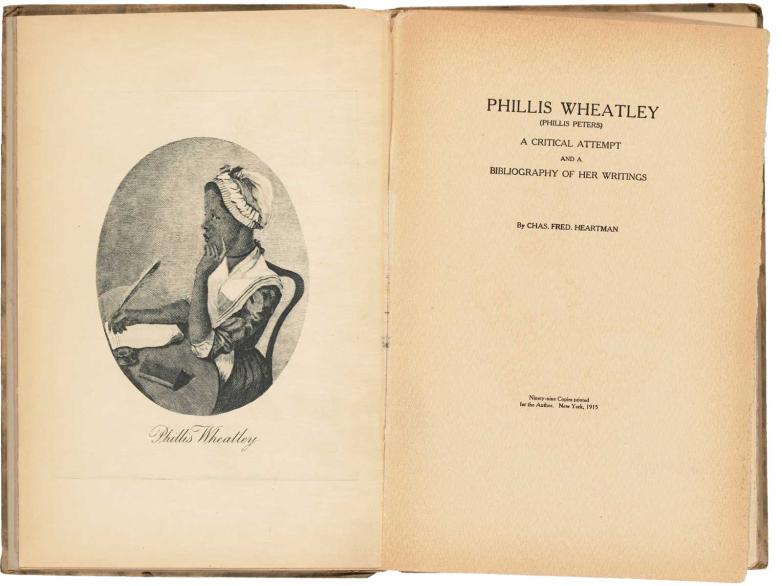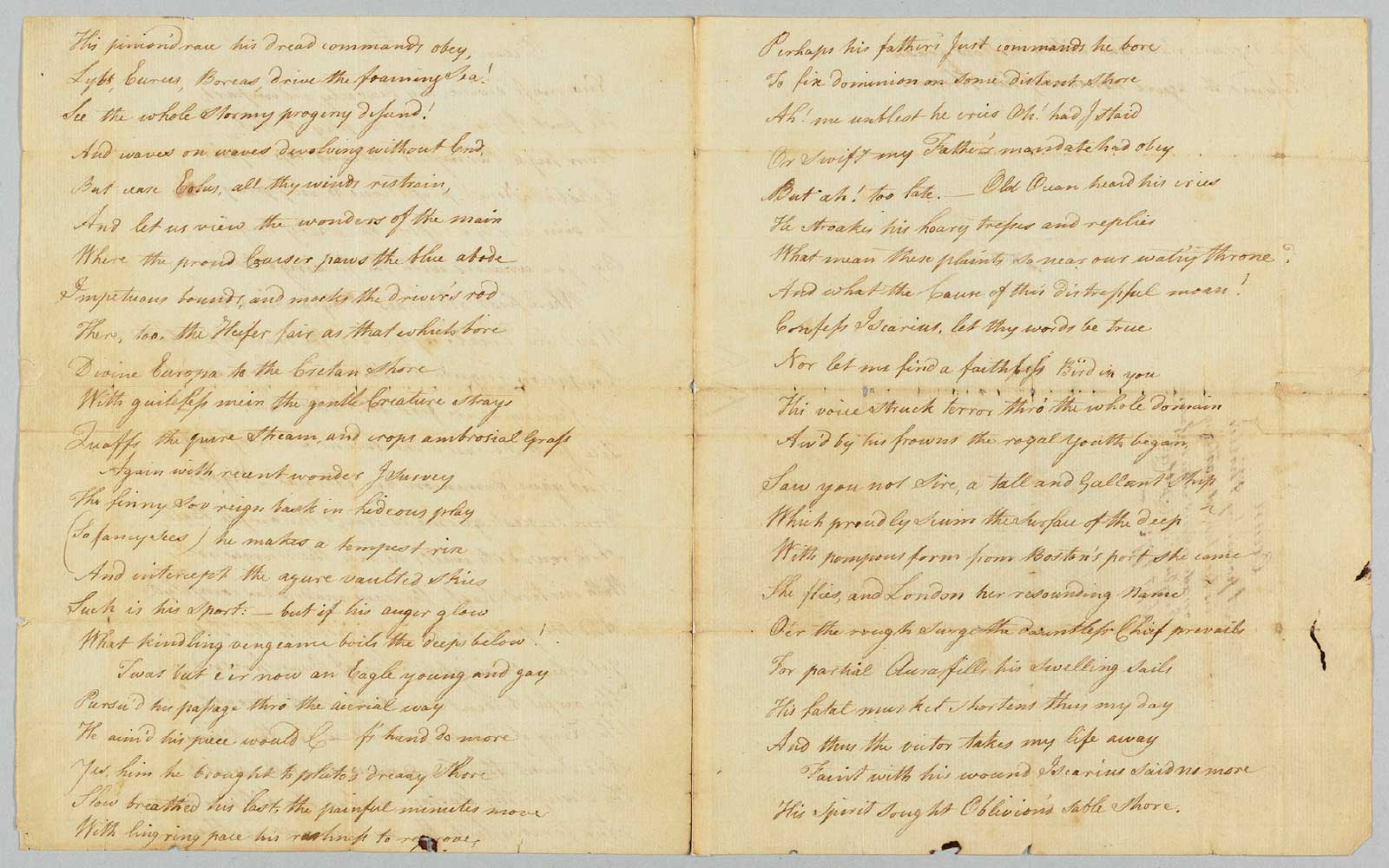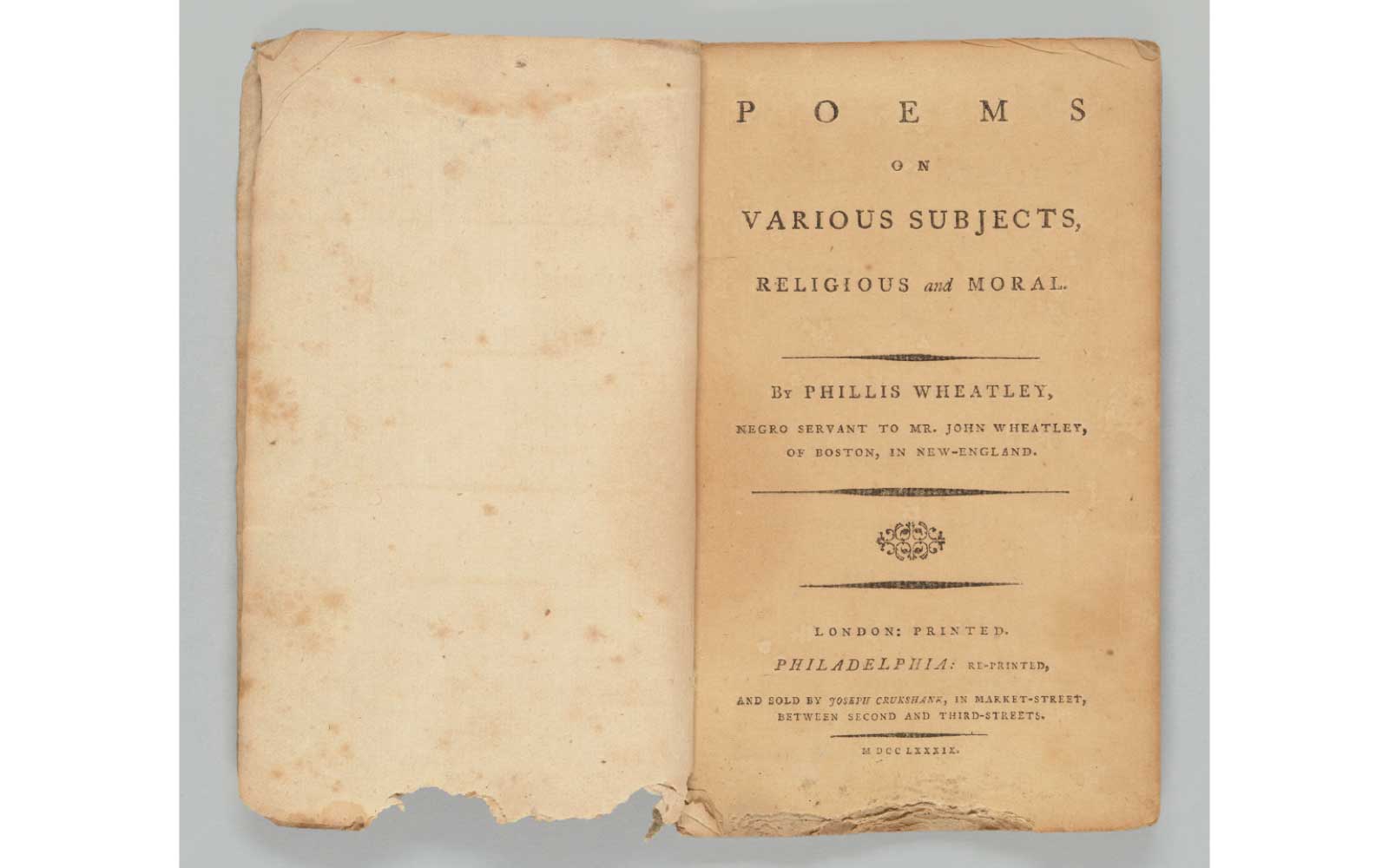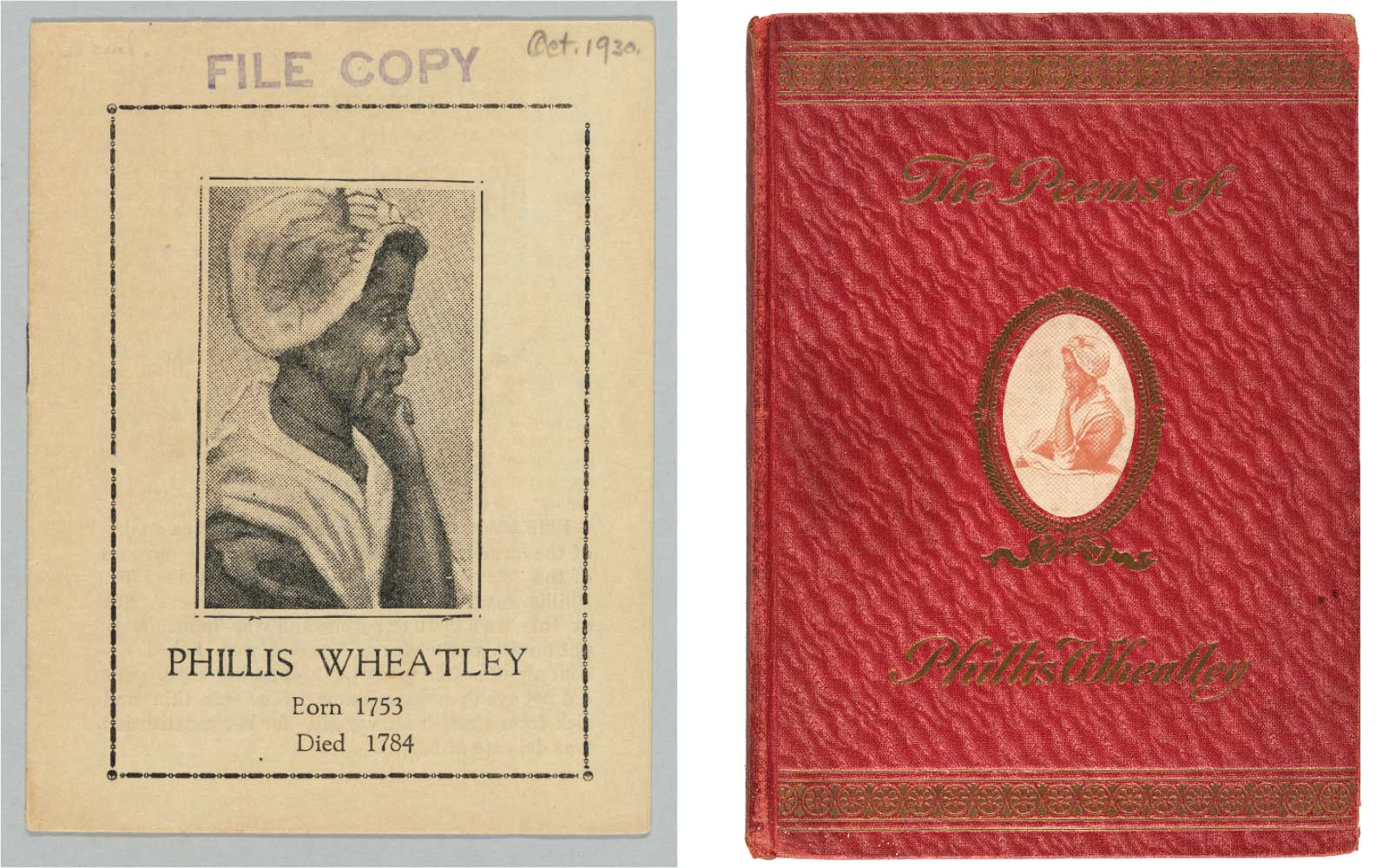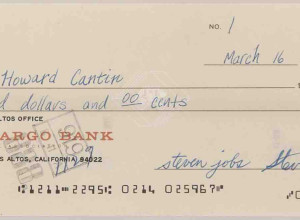According to Jefferson, Wheatley Peters was merely regurgitating her religious instruction through her poetry; as an African American—particularly as an enslaved person—he deemed it impossible for her to produce original thought, much less a creative output.
The manuscript for “Ocean” is a warm, crisp yellow-gold in its folio. The pages are thin. Wheatley Peters’s hand is sure and skilled as you read the many stanzas of a poem that describes her ocean crossing after finding instant fame amongst the abolitionist circles in England and America. The many volumes of Poems on Various Subjects in NMAAHC’s collection, and the periodical responses to Wheatley Peters, reveal just how popular and controversial this young poet was in the years leading up to the early Republic.
Though Wheatley Peters was a child of the American Revolution and many of her poems were clearly aimed at wealthy patrons, the overall effect of her poetry was far-reaching. A poem dedicated to Scipio Moorhead, a young African American painter in the Boston area, speaks to her involvement in the local community. Her method of recounting her enslavement in “On being brought from Africa to America” sparked controversy in the 1960s for its foregrounding of her conversion to Christianity, but in the 1770s, she highlighted the routes of transatlantic slavery that many preferred to ignore. Other poems revealed her distinctly African American perspective on the biblical and classical allegories that Thomas Jefferson scorned.
The latter period of Wheatley Peters’s life has mostly been ignored. The Wheatleys were pressured to manumit her when they returned from England, and after the deaths of her former owners, she married free Black grocer John Peters. She continued to write poetry, as seen in the publication of her sorrowful poem “On the Death of a Child” (1789), and sought financial support for a second volume of poetry. This collection at NMAAHC helps us to view Phillis Wheatley Peters beyond the idea of a child prodigy; she was an adult, a wife, and a mother, and her efforts to find her way as a free Black female poet reflect how the Revolutionary ideals and the birth of America’s early Republic struggled with integrating diverse perspectives on what it meant to be free, to be an American.
Phillis Wheatley Peters’s fame was short-lived in her lifetime, but her legacy and inspiration immediately bolstered the increasingly literate African American communities of the United States in the nineteenth and early twentieth centuries. This is evident in the publication of her poems by the African Methodist Episcopal Church’s book publishing arm in Philadelphia, Pennsylvania, the A.M.E. Book Concern, and the fundraising booklet published by the Phillis Wheatley Club of Waycross, Georgia. Her continued importance to the canon of American poetry is seen in copies of Caroline May’s The American Female Poets: With Biographical and Critical Notices (1848) and Pearls from the American Female Poets (1848), where Wheatley Peters is the only African American woman included.
Though there are no immediate plans to exhibit the materials at the museum, access to the materials is of the utmost importance to our team of curators, educators, and beyond. As the steward of the largest Phillis Wheatley Peters collection in a public institution, NMAAHC has several ways of engaging with “Ocean” and other texts, from deeper stories on the online Searchable Museum to the digitized copies to visiting the museum and seeing a copy of Poems on Various Subjects on display in the Paradox of Freedom exhibit. Phillis Wheatley Peters is also a significant figure in NMAAHC’s Afrofuturism exhibit (running through summer 2024), where her freedom dreams, to paraphrase Robin D. G. Kelley, continue to reverberate across generations. This includes inspiring the esteemed poet Amanda Gorman, who tweeted in February 2021:
Whenever I feel unable to write, I remember that Thomas Jefferson singled out young black poetess Phillis Wheatley with shallow disdain: “Among the blacks is misery enough, God knows, but no poetry.” Then I crack my knuckles and get to work.




